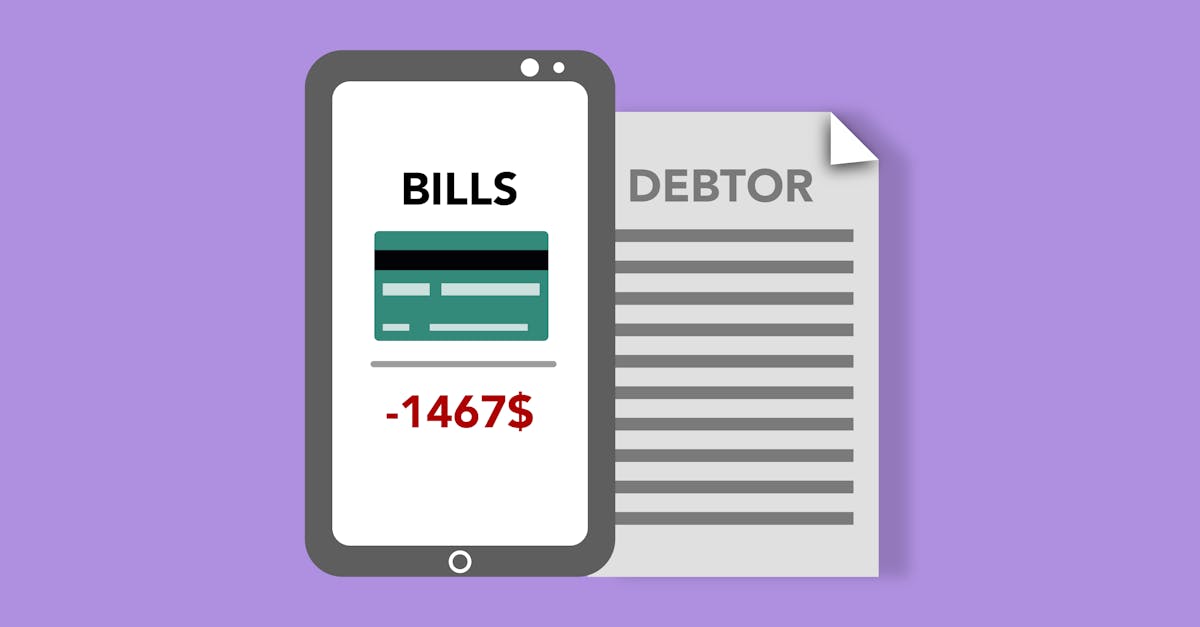How to Quickly Repair Your Credit – A Step-by-Step Guide
If you’re one of the countless individuals struggling with bad credit, you know firsthand the impact it can have on your finances and overall quality of life. From being denied loans and credit cards to facing higher interest rates and fees, having a low credit score can be incredibly stressful. Fortunately, there are steps you can take to quickly repair your credit and get back on track financially. In this step-by-step guide, we’ll walk you through everything you need to know to improve your credit score as fast as possible.
Whether you’re hoping to qualify for a mortgage or simply want to improve your financial standing, this guide is designed to help. We’ll cover everything from understanding your credit report and score to developing a plan for improving your payment history and reducing debt. With the right strategies in place, it’s possible to raise your credit score quickly and start enjoying the many benefits that come with good credit.
Understanding Your Credit Report
Before you can begin repairing your credit, it’s essential to understand what factors are impacting your score. Your credit report is a detailed record of your financial history, including all of your credit accounts, balances, payment history, and other relevant information. It’s important to check your credit report regularly and ensure that all the information listed is accurate and up-to-date.
What Information is Included in Your Credit Report?
Your credit report will typically include:
- Your personal identifying information (name, address, social security number)
- A list of all open and closed credit accounts
- Credit limits on each account
- The outstanding balance on each account
- Past due payments or accounts in collections
- Requests for new credit (hard inquiries)
You may also see public records such as bankruptcies or tax liens that can negatively impact your score.
How to Obtain Your Credit Report?
You are entitled to one free copy of your credit report every twelve months from each of the three major credit reporting agencies: Equifax, Experian, and TransUnion. You can request a copy online at annualcreditreport.com or by calling 1-877-322-8228. Once you have obtained a copy of your report, review it carefully for errors or inaccuracies.
What Should You Look for on Your Credit Report?
Some common errors you should look for include:
- Inaccurate personal information – check that all your contact details are correct (name spellings/address/phone number), Social Security number etc.
- Fraudulent activity – look for accounts you did not open or transactions that you didn’t make.
- Incorrect account information – make sure that all account balances, credit limits, and payment history are accurate.
If there are any inaccuracies on your credit report, you can dispute them with the credit reporting agency. You have the right to have errors corrected and may even be entitled to compensation if the mistakes caused financial harm.
Understanding your credit report is an essential first step in repairing your credit. By reviewing this report regularly and correcting any errors, you’ll be on your way to improving your score and taking control of your financial future.
Getting to Know Your Credit Score
Your credit score is the foundation of your credit report and one of the key factors that lenders use to determine your creditworthiness. Understanding your credit score is essential when it comes to repairing your credit, as it can help you identify areas where you need to improve and take action to address them.
What is a Credit Score?
Your credit score is a three-digit number that represents your creditworthiness based on your past borrowing and repayment behavior. It’s calculated using information from your credit report, including things like payment history, outstanding balances, and length of credit history.
Credit scores range from 300 to 850, with higher scores indicating better creditworthiness. Generally speaking, a score of 720 or higher is considered “good,” while anything below 600 is considered “poor.”
Why Your Credit Score Matters
Your credit score plays a critical role in determining whether lenders will approve you for loans or lines of credit – and at what interest rates. A higher score can help you qualify for lower rates and better terms, while a lower score may make it more difficult or expensive to borrow money.
In addition to affecting your ability to get approved for loans and lines of credit, your credit score can also impact other areas of your life. For example, landlords may check your score when deciding whether to rent an apartment or home to you. Some employers may even review prospective employees’ scores as part of their hiring process.
How Your Credit Score Is Calculated
Several factors go into calculating your credit score. The most important are:
- Payment History: Whether or not you’ve made payments on time
- Credit Utilization: The percentage of available credit you’re using
- Length of Credit History: How long you’ve been using credit
- New Credit: How often you open new accounts or apply for credit
- Credit Mix: The types of credit you have (e.g., mortgages, auto loans, credit cards)
Each factor is assigned a different level of importance, and your score is based on how well you perform in each area. For example, your payment history carries the most weight, accounting for 35% of your overall score. On the other hand, new credit and credit mix account for just 10% each.
To get a better understanding of how your score is calculated and where you stand today, it’s important to review your credit report regularly. You can order a free copy once per year from each of the three major bureaus: Equifax, Experian, and TransUnion.
Working with Credit Bureaus
If you’re serious about repairing your credit, working with credit bureaus is a critical step. These agencies are responsible for compiling and maintaining your credit report, which affects everything from your ability to get approved for loans to the interest rate you’ll pay.
Checking Your Credit Report
The first step in working with credit bureaus is to check your credit report. You’re entitled to a free annual report from each of the three major bureaus (Equifax, Experian, and TransUnion). Once you have the reports in front of you, look for any errors or inaccuracies that could be dragging down your score. If you find any mistakes, dispute them with the bureau as soon as possible.
Another important reason to regularly check your credit report is to look for signs of identity theft. If someone else has opened accounts in your name or accessed your financial information without permission, it can wreak havoc on your score – not to mention cause a host of other problems. Be on the lookout for any accounts or inquiries that you don’t recognize.
Contacting Credit Bureaus
If there are errors on your credit report that need correcting, it’s crucial that you contact the appropriate bureau right away. Each agency has its own process for disputing information; follow their instructions carefully and provide all necessary documentation to support your claim. Some disputes can be resolved quickly while others may take several weeks or even months.
In addition to disputing inaccuracies, there are other steps you can take when working with credit bureaus. For example, if you’ve recently paid off an outstanding debt but it’s still showing up as delinquent on your report, contact the creditor and ask them to update their records with the bureau.
Building a Relationship with Credit Bureaus
Successfully repairing your credit isn’t a one-and-done process. It takes time, effort, and ongoing attention to detail. By building a relationship with credit bureaus, you can stay on top of any changes or updates to your report and proactively address issues as they arise.
One way to strengthen this relationship is by signing up for credit monitoring services. These services will alert you to any changes in your score or report so that you can take action quickly. Additionally, consider sending the bureaus letters of explanation for any negative items on your report that may be hurting your score.
In conclusion, working with credit bureaus is an important aspect of repairing your credit. By checking your report regularly for errors or signs of identity theft, contacting the bureaus to dispute inaccuracies, and building a relationship with them through ongoing monitoring and communication, you can take control of your financial future and improve your credit standing over time.
Strategies for Raising Your Credit Score Quickly
1. Pay Down High Balances
One of the most critical factors influencing your credit score is credit utilization. Your credit utilization is the amount of credit used versus the amount of credit available to you. Ideally, you should aim to use less than 30% of your available credit. Paying down high balances on your credit cards and other loans can quickly improve your utilization rate and boost your score.
If you’ve been using a large percentage of your available credit, starting with high balances should be a priority. Begin by targeting the account with the highest balance and focus on paying it down as soon as possible while still making minimum payments on all other accounts.
2. Get Caught Up on Late Payments
Late or missed payments can have a significant impact on your score, especially if they are recent or frequent. If you’re behind on payments, get caught up as soon as possible by paying off any past-due amounts that are holding you back.
If you’re having difficulty keeping up with multiple bills each month, consider consolidating them into one payment or setting up automatic payments through your bank or creditor’s website.
3. Ask for a Credit Limit Increase
An easy way to lower your overall utilization rate is to increase the amount of available credit at your disposal. Contacting your creditors to request an increase in your credit limit can help achieve this goal.
To do this successfully, make sure that you have been making timely payments and maintaining good standing with that particular creditor before requesting an increase in your limit. A higher limit will give you more leeway in managing debt while also working to improve your score.
4. Become an Authorized User
If you have a close friend or family member who already has good credit, ask them to add you as an authorized user on their account. This strategy only works if the primary user is responsible with their credit and has a long history of timely payments.
Being added as an authorized user can help boost your score quickly by adding positive payment history and available credit to your report. It’s important to verify that the account in question is reported on your credit report before pursuing this option.
Remember, repairing your credit takes time, patience, and discipline. However, by implementing these strategies for raising your credit score quickly and maintaining good habits going forward, you will be well on your way to achieving a healthier financial future.
Setting Realistic Goals and Making a Plan
Repairing your credit is not a quick fix, and it’s important to set realistic goals. Start by reviewing your credit report, identifying negative items that are impacting your score, and determining which items can be addressed quickly. Then create an action plan to tackle the most pressing issues first.
A good way to begin is by prioritizing outstanding debts. Make a list of all accounts that are past due or in collections, noting the amount owed and the creditor’s contact information. Next, determine how much you can afford to pay each month towards these debts while still covering other necessary expenses.
If you have multiple credit cards with high balances, consider consolidating them into one account or transferring the debt to a card with a lower interest rate. This can help reduce your overall monthly payments and make it easier to manage your debt.
It’s also important to be patient with yourself during this process. Remember that rebuilding your credit takes time, but setting small achievable goals along the way can help you stay motivated and make progress towards achieving overall financial stability.
Tackling Debt and Improving Payment History
One of the biggest factors that contribute to a low credit score is a history of late payments and high levels of debt. If you want to quickly repair your credit, it’s important to focus on paying down your debt and making all of your payments on time. Here are some strategies for tackling debt and improving your payment history:
Create a Budget
The first step in tackling your debt is creating a budget that allows you to live within your means while still making progress towards paying off your debts. Start by listing all of your monthly expenses, including rent/mortgage, utilities, groceries, entertainment, transportation costs, etc. Then, subtract this amount from your monthly income to determine how much you have left over each month for debt repayment.
Once you have determined how much money you can allocate towards debt repayment each month, create a plan for paying off each debt one-by-one based on their interest rates and balances. Consider using the snowball or avalanche method to prioritize which debts to pay off first.
Negotiate with Creditors
If you are struggling with high levels of debt or facing financial hardship that makes it difficult to keep up with payments, consider negotiating with creditors directly. Many creditors are willing to work out alternative payment arrangements or settle debts for less than the full amount owed if it means they will still receive some payment instead of nothing at all.
Before contacting creditors or collection agencies about negotiating payments or settlements, make sure you have a clear understanding of your financial situation and what options would be most feasible for you. It’s also important to get any agreements in writing before making any payments or signing any documents.
Avoid Late Payments
Making all of your payments on time is crucial for improving your payment history and raising your credit score. One of the best ways to avoid late payments is to set up automatic payments or reminders through your bank account or creditor’s website.
If you do happen to miss a payment, it’s important to catch up as soon as possible. Late payments can have a significant impact on your credit score and stay on your credit report for up to seven years.
Conclusion
Tackling debt and improving payment history is not an overnight process but making a plan, negotiating with creditors, avoiding late payments can help you quickly repair your credit. Remember, it’s important to remain disciplined and committed towards sticking with your repayment plan and keeping up with all of your future payments.
Opening New Accounts and Managing Them Responsibly
Opening new credit accounts can be a double-edged sword. On one hand, it can improve your credit utilization ratio (the amount of credit you’re using versus the total amount available). But on the other hand, opening too many accounts in a short period of time can lower your credit score. So how do you navigate this balancing act?
First, understand that there are different types of credit accounts, including revolving (like credit cards) and installment (like mortgages and car loans). It’s generally best to have a mix of both types on your credit report – but again, don’t open too many at once.
If you’re just starting to rebuild your credit, consider applying for a secured credit card. These require a deposit upfront but are designed to help you establish or rebuild your credit. Once you’ve had the card for several months and established good payment history, you may be able to upgrade to an unsecured card with better terms.
When applying for any type of new account, read the terms carefully before signing up. Look for fees like annual fees or balance transfer fees that could eat into any potential benefits. Also make sure you understand the interest rate – if it’s high, it could negate any gains from improving your utilization ratio.
 Reducing Credit Utilization: What You Need to Know
Reducing Credit Utilization: What You Need to Know
Credit utilization is one of the most significant factors affecting your credit score, which means that reducing your credit utilization rate can be an effective way to boost your credit score quickly. Your credit utilization rate is the amount you owe on your credit cards compared to your total available credit limit. Ideally, you should aim to keep this rate below 30%. Here are some tips for reducing your credit utilization:
Pay Down Your Balances
The easiest way to reduce your credit utilization rate is by paying down your balances. Start by targeting the cards with the highest balances or highest interest rates first, and focus on making more than just the minimum payment each month if possible. Even small payments above the minimum payment can help reduce your balance over time.
Increase Your Credit Limit
If you’re struggling to pay down high balances quickly, consider requesting a higher credit limit from one or more of your card issuers. This can increase the amount of available credit you have, which in turn can lower your overall utilization rate. However, be careful not to use this as an excuse to spend more money on those cards.
Avoid Closing Accounts
It may seem counterintuitive, but closing a credit account can actually hurt your score by increasing your overall utilization rate. This is because closing an account reduces the amount of available credit you have, which could cause a spike in your overall usage percentage if you carry balances on other accounts.
Consider a Balance Transfer
If you have high-interest debt spread across multiple cards, consider consolidating it onto one card with a lower interest rate through a balance transfer. This will not only simplify repayment but also help lower overall usage percentage and ultimately boost your credit score.
Reducing credit utilization can be a powerful tool in improving your credit score quickly. By paying down balances, increasing your credit limit, avoiding account closures, and considering a balance transfer, you can make great strides towards achieving a better credit score.
Keeping an Eye on Your Credit Report and Score
Your credit report and score are dynamic, which means they’re constantly changing as you use your credit. The good news is that you don’t have to wait for your annual credit report to find out what’s happening with your credit. You can monitor it throughout the year by getting free weekly reports from the three major credit bureaus (Experian, Equifax, and TransUnion) via AnnualCreditReport.com or other online services.
Reviewing your report will not only alert you to any fraudulent activity but will also help you catch errors in reporting. According to the FTC, one in five people have an error on their credit reports that could negatively impact their score. Disputing inaccuracies is a straightforward process that can be done online or by mail.
It’s also important to track your score regularly because it impacts everything from loan approval to mortgage rates. Seeing how specific actions—like paying off debt or opening a new account—affect your score can help you make informed decisions about future financial moves.
Don’t obsess over minor fluctuations in your score; it’s normal for it to fluctuate a few points each month based on usage and payment patterns. Instead, focus on the overall trend—has it improved over time? If not, take a closer look at what might be holding you back and address those issues in order of priority.
Putting It All Together: Maintaining Good Credit Habits
Stick to a Budget and Live Below Your Means
One of the most important steps in maintaining good credit is sticking to a budget that allows you to live below your means. This means avoiding overspending and living within your financial limitations. By creating a monthly budget, tracking your expenses, and making adjustments as needed, you can ensure that you are always spending less than you earn. This will help you avoid taking on more debt than you can handle and allow you to make timely payments on all of your bills.
It’s important to remember that living below your means doesn’t mean living a life of deprivation or constantly denying yourself the things you enjoy. Instead, it’s about finding ways to cut back on unnecessary expenses while still enjoying the things in life that matter most to you. Whether it’s cutting back on eating out or finding ways to save on entertainment costs, there are plenty of ways to live within your means while still enjoying life to the fullest.
Maintain Good Payment Habits
In addition to living below your means, maintaining good payment habits is crucial when it comes to maintaining good credit. This means making all of your payments on time every month and keeping up with any payment arrangements that have been made with creditors or lenders.
If for some reason you’re unable to make a payment one month, contact your creditor immediately and explain the situation. They may be willing to work out an alternate payment plan or help you develop a plan for catching up on missed payments without damaging your credit score.
Avoid Applying for Too Much Credit at Once
Another good practice for maintaining great credit is avoiding applying for too much credit at once. While it can be tempting to try and take advantage of every credit offer that comes your way, doing so can actually damage your credit score, particularly if you’re not approved for some of the offers.
Instead, only apply for credit when you really need it and make sure to do your research ahead of time to find the best deals and rates. By being selective about the credit you apply for and taking steps to improve your overall financial standing, you’ll be able to maintain great credit for years to come.
Regularly Monitor Your Credit Report
Finally, one of the best ways to maintain good credit is by regularly monitoring your credit report. This will allow you to catch any errors or issues that may come up before they have a chance to do real damage to your score. Make sure to check all three major credit bureaus regularly and dispute any errors or inaccuracies as soon as possible.
In addition, keeping an eye on your credit report can also help you identify areas where you need improvement such as high utilization rates or missed payments. By being proactive about maintaining good credit habits and staying on top of any potential issues that arise, you’ll be well on your way towards achieving financial freedom and success.
 Conclusion
Conclusion
In conclusion, repairing your credit is a process that takes time and patience. However, with the right strategies and a commitment to good financial habits, you can quickly see improvements in your credit score. By understanding your credit report, working with credit bureaus, reducing your credit utilization, and maintaining good payment history, you’ll be well on your way to achieving financial stability. Remember to stay vigilant about checking your credit report on a regular basis and always be mindful of how opening new accounts or taking on new debt can impact your overall creditworthiness. With these tips in mind and a determination to succeed, you can take control of your finances and achieve the financial freedom you deserve.








